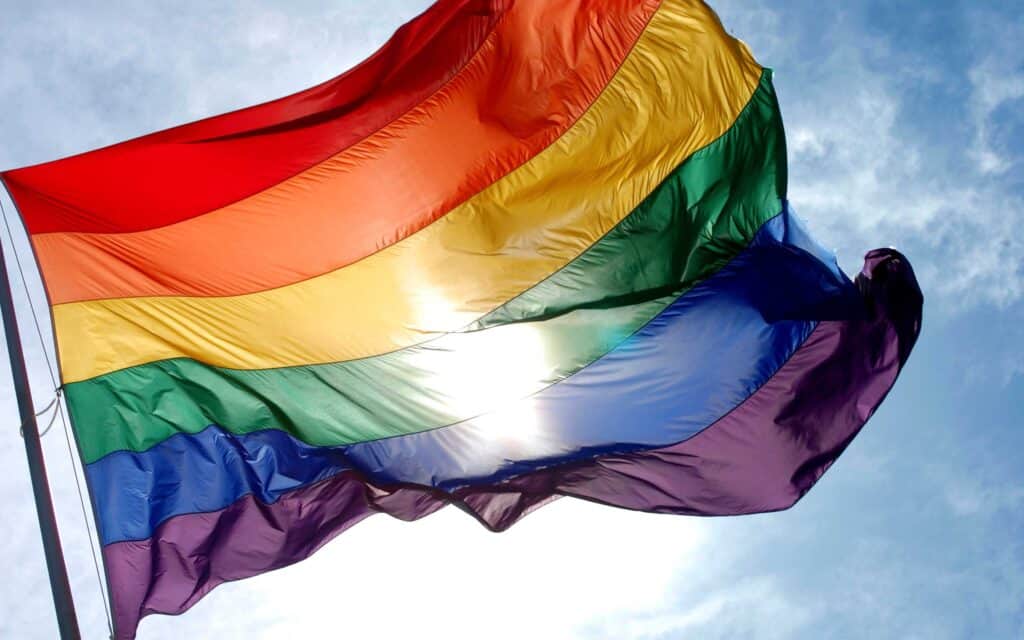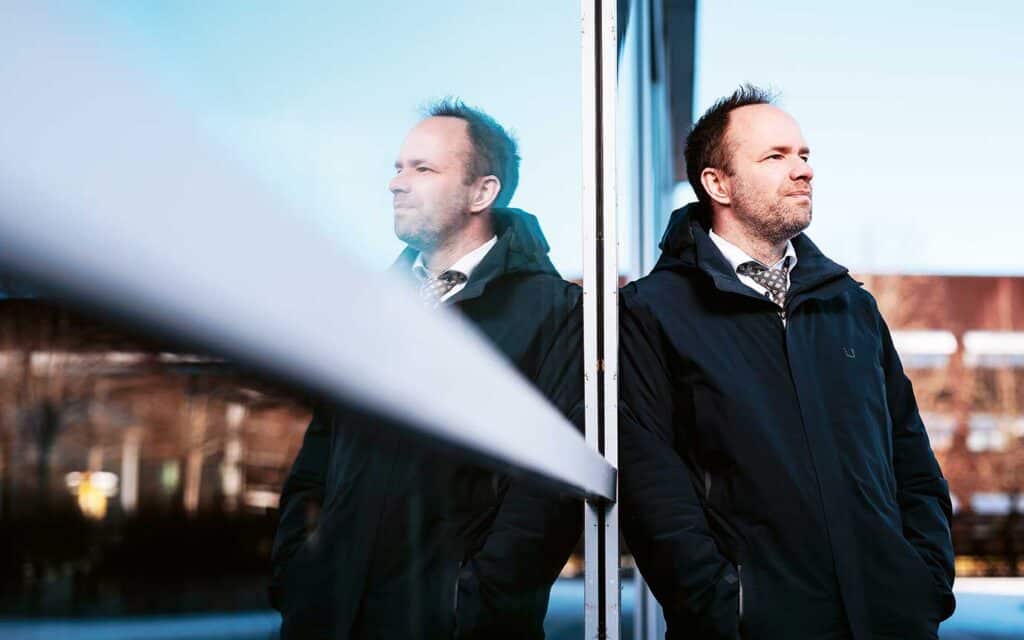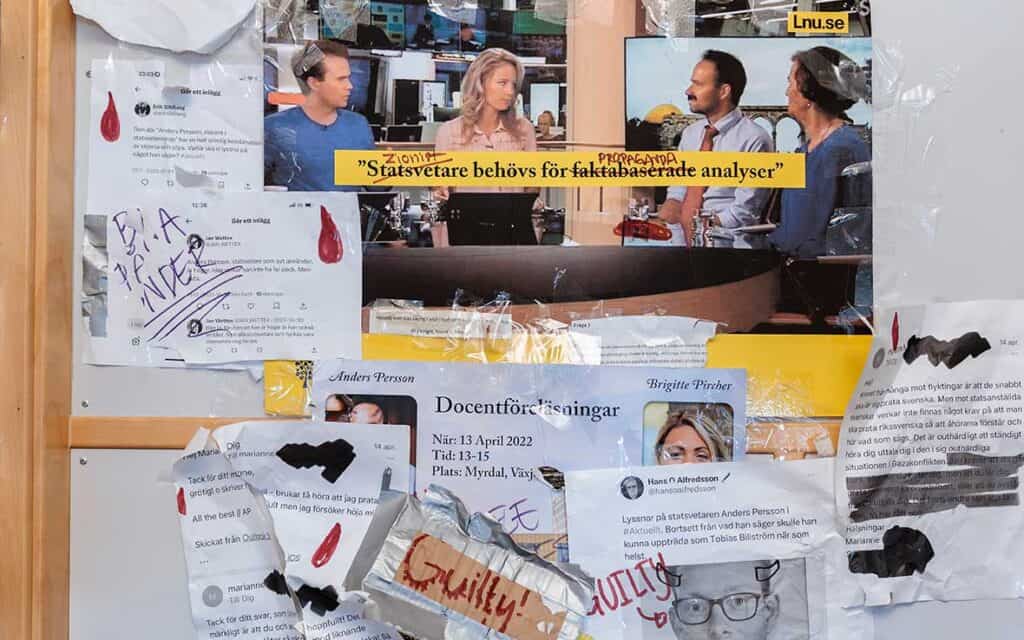At several of this summer’s Swedish Pride festivals, participants were subjected to threats and abuse. Libraries that invite drag queens to read fairy tales have received threats and been forced to cancel the events. Municipalities have had to cancel transgender summer camps for children. In August, the Sweden Democrats Member of Parliament Björn Söder claimed that Pride legitimises paedophilia. These are just some of the occurences during the past year that have shed light on the situation for LGBTQ people.
Obliged by law to implement active measures
Employers in Sweden are obliged by law to implement active measures to prevent discrimination. This means that the employer must identify and eliminate risks of discrimination, including through competence development.
So what is the situation at higher education institutions? Universitetsläraren sent a questionnaire with questions about how they work with the work environment for LGBTQ people to 35 institutions, and received responses from 33.
In the past five years, none of these higher education institutions has conducted any specific analysis of how LGBTQ employees feel about their work environment.
On the other hand, many have included questions about harassment, victimisation and discrimination, including on grounds of sexual orientation and gender identity, in their employee satisfaction surveys. 22 out of 33 institutions answered explicitly that they have done so.
Those which stated that they ask about discrimination, harassment or victimisation in their employee surveys were asked a follow-up question about how they interpreted the results. Seven institutions did not answer or said they were unable to draw any conclusions, but eight responded that discrimination or harassment due to sexual orientation or gender identity seems to occur.
“We plan to conduct our own survey”
At the Swedish University of Agricultural Sciences, SLU, the most recent employee survey revealed that just over one per cent of respondents had experienced discrimination due to expression of gender identity. Just under one per cent had experienced discrimination due to sexual orientation.
“We have examined how we can investigate risks of discrimination based on the different grounds for discrimination listed in th elegislation and work with active measures going forward,” says Jenni Vahlström, an HR specialist at SLU. “We plan to conduct our own survey, looking at all the listed grounds for discrimination. But this is not something that we will send out to all employees at the same time. It will go through each department separately.”
At Chalmers University of Technology, 0.7 per cent of respondents in the survey answered that they had experienced discrimination due to expression of gender identity. 0.4 per cent have experienced discrimination due to sexual orientation occurs at Chalmers University.
“We have been focusing on gender equality. Other forms of discrimination have not been followed up systematically,”
Maria Saline, Chalmers
“We have been focusing on gender equality. Other forms of discrimination have not been followed up systematically,” says Maria Saline, gender equality coordinator at Chalmers.
Resistance against working with gender equality
She says that there was some resistance at the university against working with gender equality, but that this has now improved after a few years of work. “So perhaps we will now have the courage to take the next step and start to focus on to intersectionality. There is a need and demand for it, but nothing is actually happening yet.”
Chalmers is an old engineering school, and a lot of the culture is “in the walls”, she continues. “Things are very norm-stereotypical here. At the same time, there is an awareness that this is the case, and that this means that we will not attract the smartest minds.”
The majority of higher education institutions do not offer any specific training on LGBTQ issues for managers and staff, the Universitetsläraren survey shows. Five responded with a simple no. The Swedish Defence University and Luleå University of Technology held courses before the pandemic, but not now.
Of the others, most report that managers receive training about equal conditions and prevention of discrimination in general. However, the Royal Institute of Art, the Royal College of Music and Umeå University have bought training from the non-profit organisation RFSL, the Swedish Federation for Lesbian, Gay, Bisexual, Transgender, Queer and Intersex Rights.
The Royal Institute of Technology, KTH, regularly holds open lectures for staff on LGBTQ topics. Stockholm School of Economics includes LGBTQ issues as part of a mandatory workshop for employees.
Chose not to renew certification
Five institutions stated that they have been partially LGBTQ certified. Stockholm University of the Arts and Halmstad University have previously been certified to varying extents but have chosen not to renew their certification. “We [wanted to] develop our own course instead, and include all grounds for discrimination,” explains Suzanne A Mason, coordinator for equal conditions at Halmstad University, by e-mail.
At Linnaeus University, five departments and offices have been certified. “We see it as a good way to acquire knowledge about LGBTQI+ issues in relation to our gender equality integration plan,” says Karin Fingal, the university’s coordinator for equal conditions. “Some departments and department heads have chosen to work in a different way, for example with lectures.”
“Some departments and department heads have chosen to work in a different way, for example with lectures.”
Karin Fingal, Linnaeus University
It is awareness-raising activities that are the core, she says. “Research shows that we need to improve our attitudes towards LGBTQI people, and certification is a structured way of working with this.”
Kristina Hildebrand is a member of the SULF Association Board and a head of department at Dalarna University. She has a strong interest in LGBTQ issues, and believes that it is not just a matter of human rights, but that research and education benefit from a diverse group of teachers and researchers. “Also so that the students can see themselves reflected in the teaching group,” she adds.
“The social climate is getting tougher”
Her view is that both SULF and the higher education institutions work with discrimination issues in general, and more rarely with individual discrimination grounds. “But the social climate is getting tougher. I think that in the future we may have to focus on specific types of discrimination which are becoming more prevalent, and I think LGBTQ issues are in that category.”
Hildebrand thinks it is a clear benefit if universities and colleges acquire LGBTQ certification. “It provides an opportunity to learn and reflect on unconscious ideas, and is a statement on the part of the institution. They need to work consciously with these issues, not just see it as a box ticking exercise. It is especially important in smaller towns where LGBTQ people may face bigger problems.”
Last year, the the Swedish Agency for Work Environment Expertise presented a summary of its research on LGBTQ people’s organisational and social work environment. Many LGBTQ people are happy at work, the presentation showed. “At the same time, discrimination and harassment occur in everyday life. It might be career discrimination, but microaggressions are also very common, i.e. negative jargon or condescending statements that are not always direct,” says Andrea Eriksson, a docent at KTH and the lead author.
Most people do not experience direct discrimination or harassment on a daily basis, says Eriksson, but feel more subtly excluded due to heteronormative behaviour and attitudes in the workplace. “Many feel that there is a kind of silence about these issues and are afraid that their manager will not act if something happens. Nobody talks about LGBTQ issues, so you don’t know what others think and you don’t dare to be open. It’s difficult to call it discrimination, but it makes for an exclusionary work environment.”
Ortnamn beskrivna av Josefin Devine
ADVICE TO MANAGERS AND ELECTED REPRESENTATIVES
Make sure you have competence in the issues.
Research shows that there are work environment risks linked to being an LGBTQI person. See it as a work environment issue that you need to work specifically with.
Work actively with equal treatment measures in your preventive work. You need to know if someone is being discriminated against and have a plan to prevent it.
Follow up: If, for example, all managers are to attend a training course, confirm that they have been completed it and what knowledge and revised working methods the training has contributed to.
In order for everyone to feel included, it is good not to talk too broadly about LGBTQI matters, but to name different groups specifically. Bisexuals and transgender people can often feel invisible.
Source: Andrea Eriksson, one of the authors of an upcoming research-based guide for managers, HR staff and elected union representatives on how the workplace can be made more inclusive for LGBTQ people.
LGBTQ stands for lesbian, gay, bisexual, transgender and queer (or questioning). Sometimes an I is added to the end, which stands for intersex.
How the survey was conducted
Questionnaires were e-mailed to 35 universities and colleges. 33 of them universities responded – all except Linköping University and Beckmans College of Design.
The questions were:
- Has there been any survey conducted at your higher education institution in the past five years on how LGBTQ employees feel about their work environment? If yes, how were the results interpreted?
- Do managers, employees and teaching staff at the institution receive training on LGBTQ issues? If yes, in what way?
- Have any parts of the institution been LGBTQ-certified? If yes, which ones?


















